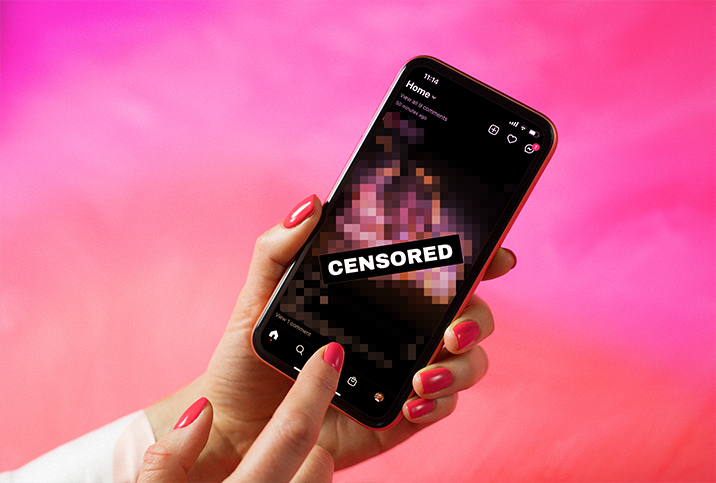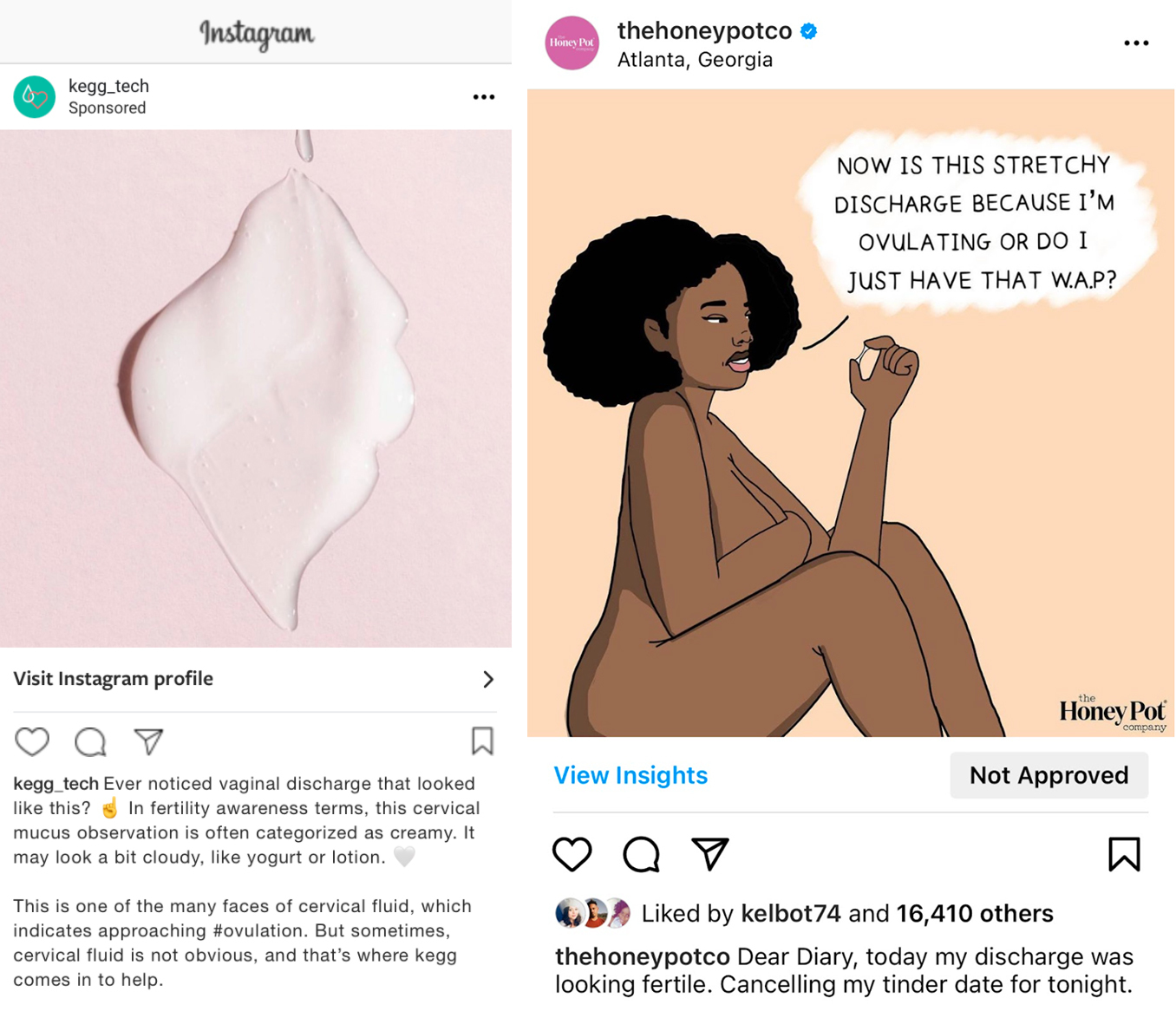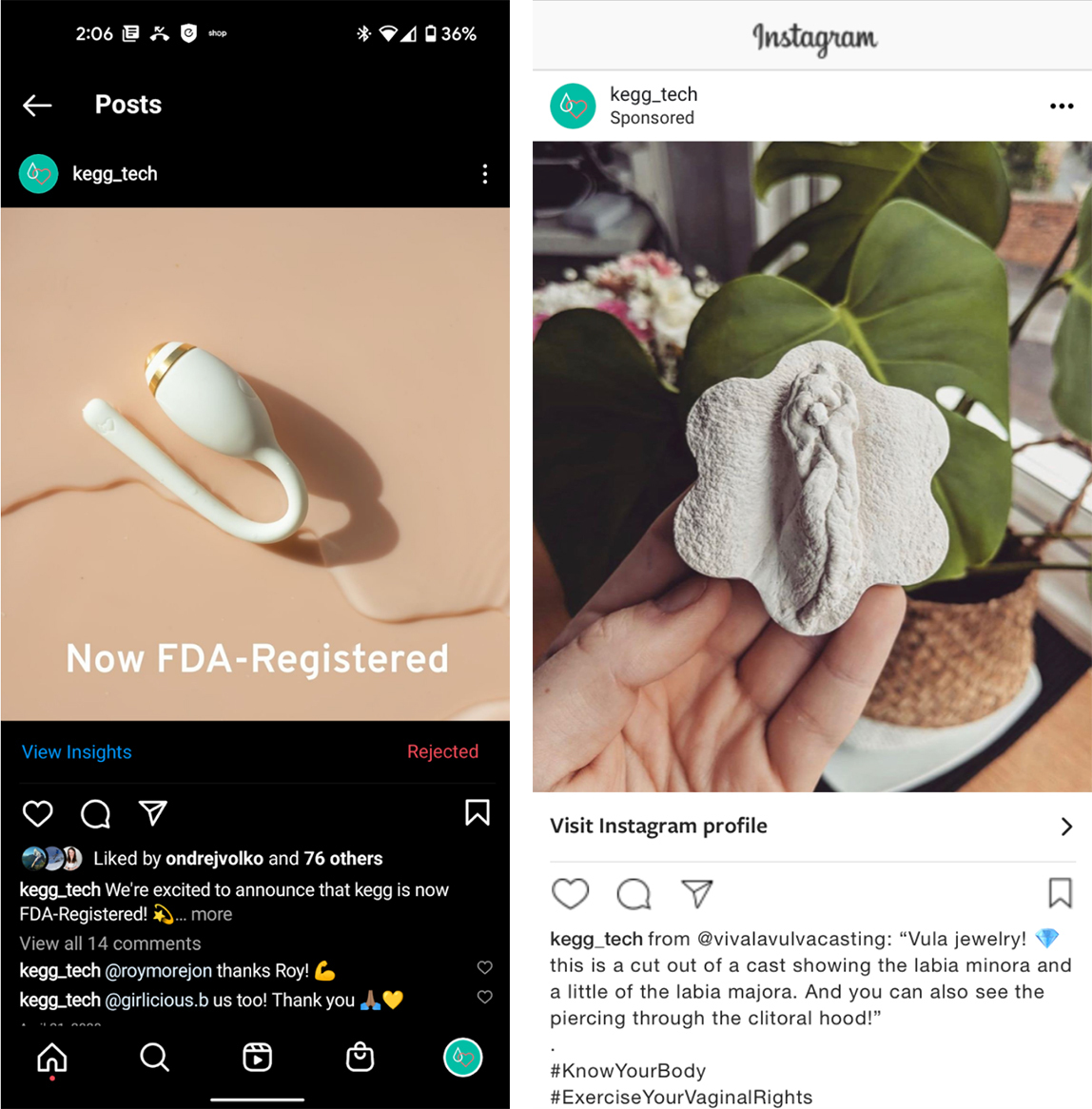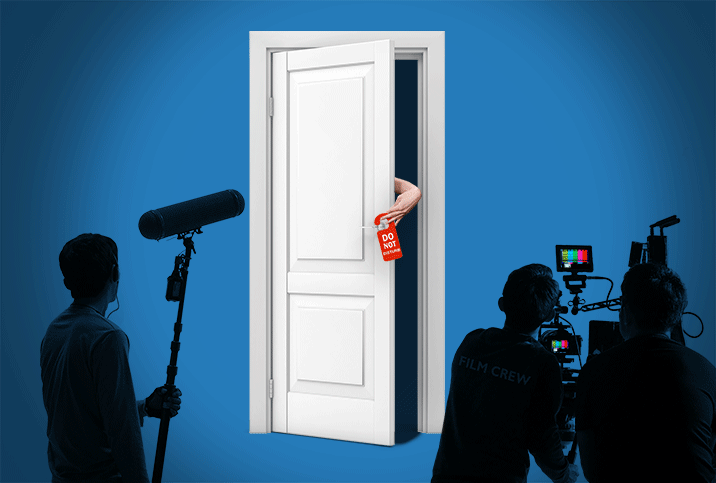Women's Health Brands Take a Stand Against Social Media Censorship

These days, social media isn't just a place where we connect with friends, it's also a place where we connect with brands.
Ad content accounts for a significant portion of the average social media feed. In fact, some marketers believe roughly one in four posts on social media is an ad. A small 2020 survey by consumer comparison website WhistleOut found Facebook newsfeeds are made up of an average of 21.2 percent ads, followed by Instagram at 20.6 percent ads, LinkedIn at 19.6 percent ads and Twitter with 14.2 percent ads.
While seeing so many ads can sometimes prove frustrating, it can also be an enlightening and effective way to learn about new products, find brands you like and support small businesses. However, for womens' healthcare brands, social media isn't always the place for connection and education that it should be.
According to a rising number of brands, womens' healthcare ads and content are routinely censored on a number of social media platforms. So far, more than 40 femtech brands, including Foria, Dame Products, Ohnut, Kegelbell, Lilu, Awkward Essentials and the Honey Pot, have signed a petition started by Kristina Cahojova, founder of kegg, that claims health education content is being banned while more sexually explicit images are approved.
The petition states: "Educational content or promotion of women's health products has [been] systematically miscategorized as 'Adult products or services' and banned, while truly sexual and explicit content or ads have been allowed by social media companies."
We spoke to a few of the founders who signed the petition to find out more about women's healthcare obstacles on social media.
Is womens' health content being censored?
For many women's healthcare brands, advertising on social media is becoming more and more difficult. By using "anatomically correct" words such as vagina and cervical mucus or educational diagrams about breastfeeding and pelvic floor health, they have found their content flagged as "sexual" and thus removed.
Here are just a few of the ads that have been rejected over the past few years:


Usually, the ads are rejected because they're seen as what the platform deems "sexual content," however, it isn't always clear how the ads violate the platform's specific rules.
"It is a mystery why some ads trigger rejection more than others," said Stephanie Schull, founder of Kegelbell, the Vagina Gym. "They won't tell you directly, they just send you to their policy on adult toys or sexually explicit content…Not being told precisely what is wrong has an overall chilling effect on our content creation, and it is demoralizing to regularly experience being 'rejected' for 'violating rules' when we are just trying to talk with women simply and sanely about women's health."
Sexist AI?
"Women's health is heavily censored, and I think it's because the people making the AI are just ignorant," Cahojova said.
Cahojova explained that numerous words, such as PMS, mood swings, fertility, vagina and menstruation, can trigger a platform's algorithm to immediately ban content. In fact, she even worked with one TikTok influencer, a mother of three, who was promoting fertility heath in her videos. Not only were her videos removed, but her entire account was also banned from the platform.
"When a bunch of AI engineers are all male, it doesn't even cross their minds that when you talk about a vagina it could be about something that isn't sexual," she said. "They kind of get it with men's health, but with women's health? They have no idea."
Why is women's health content treated as explicit or sexual?
According to some of the founders taking part in the petition, the sexism embedded in social media algorithms comes down to a societal problem.
"It starts with our society's irrational and unhealthy view of women and their bodies, and how we pathologize women for having these parts and for seeking help," Schull said. "There is a clear difference between raunchy pornography and sober discussions of women's health, and to pretend it is ambiguous is disingenuous."
In other words, educational content is being conflated with sexual content because of a societal stigma around female sexual health.
"The trend is clear: Women are encouraged to present themselves sexually for the male gaze throughout media, but when women want sex education for themselves, it is considered lascivious and blocked," Schull said.
Why ending stigma around women's health matters
Multiple brands say they are unable to publish educational content because of the stigma around women's health. In a world where women's health care is already underserved, this could have dangerous consequences.
"Our fear of talking about the female form allows for illness to linger and even get worse," Schull said. "I am trying to have a conversation with women about the health of their pelvic muscles. Constipation, menstrual cramps, incontinence, vaginal dryness, anorgasmia, laxity, pelvic organ prolapse and many other issues are generated by pelvic muscle dysfunction—but that is not a conversation I can have because the words vagina, lubrication and orgasm are all trigger words for the censorship bots."
Women need access to information about their own health, and social media could be a useful place for it to live. These brands have knowledge, expertise and useful tools for women. However, until their content is allowed to be published, many women will never know about it.
The next steps
Brands involved in the petition hope raising awareness around the double standards on social media helps end the stigma surrounding women's health.
"I hope social media will actually champion women's health resources, including discussions of female pleasure and sexual function," Schull said. "Bending to the arbitrary and harmful views that deem all female sexual health discussions 'naughty and perverse' is not neutral, it is to choose a side with a subset of people that have no rational reason for holding a view that is harmful to public health."


















